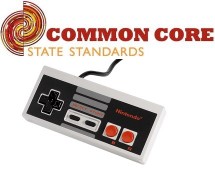Takeaway: When developing an educational game for the K12 market, start by matching what you want to teach with what educators need to cover. State and local standards provide a handy shortcut, though nothing beats actual research (talking to real teachers).
Peter Stidwell, an Executive Producer at the Learning Games Network, has written up an excellent guide to developing games that can succeed in the K12 market. One of the most important points isn’t about marketing but rather ensuring the game itself fits the needs of American teachers:
Tie your game to standards. Stateside, the Common Core State Standards (CCSS) is the equivalent of the National Curriculum. Sort of. CCSS only covers some subjects, it’s very new, and not all States have signed-up to it. There are also individual state standards in various subjects.
— How to market your game to US schools (Edugameshub)
Ensuring that people actually want the product always precedes marketing — in fact, it precedes development. Too often I’ve seen organizations create materials that push an internal agenda, then scratch their heads about how to get teachers to use them. “Vanity projects” have little chance of gaining significant usage because they aren’t meeting an urgent need.
Educational games are no different than any other product: they must meet customer needs. Designing your game to explicitly meet Common Core or state standards is a pretty good bet – though your best option is to first conduct user research, to make sure. How you interpret the standards may not be how schools or teachers do it — or maybe teachers are only spending 20 minutes on what you think is a one-week topic.
Example: Key to iCivics’ widespread adoption was to develop our games and other materials to meet specific middle school civics / social studies standards. We started with in-house standards alignment and eventually outsourced it to Academic Benchmarks both because of the time involved (there’s no Common Core for civics, so we had to match to 50+ states — including DC, military, and territories — different standards) and the credibility of third-party certification. Check out iCivics’ standards-matching.
